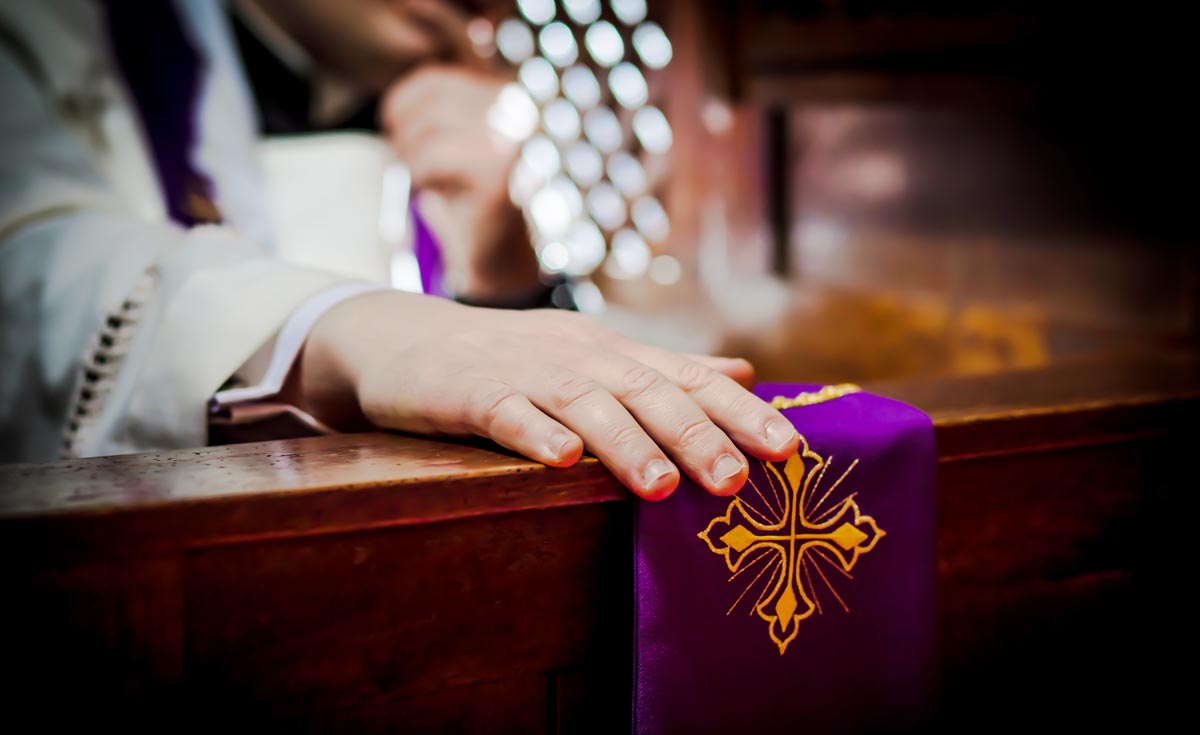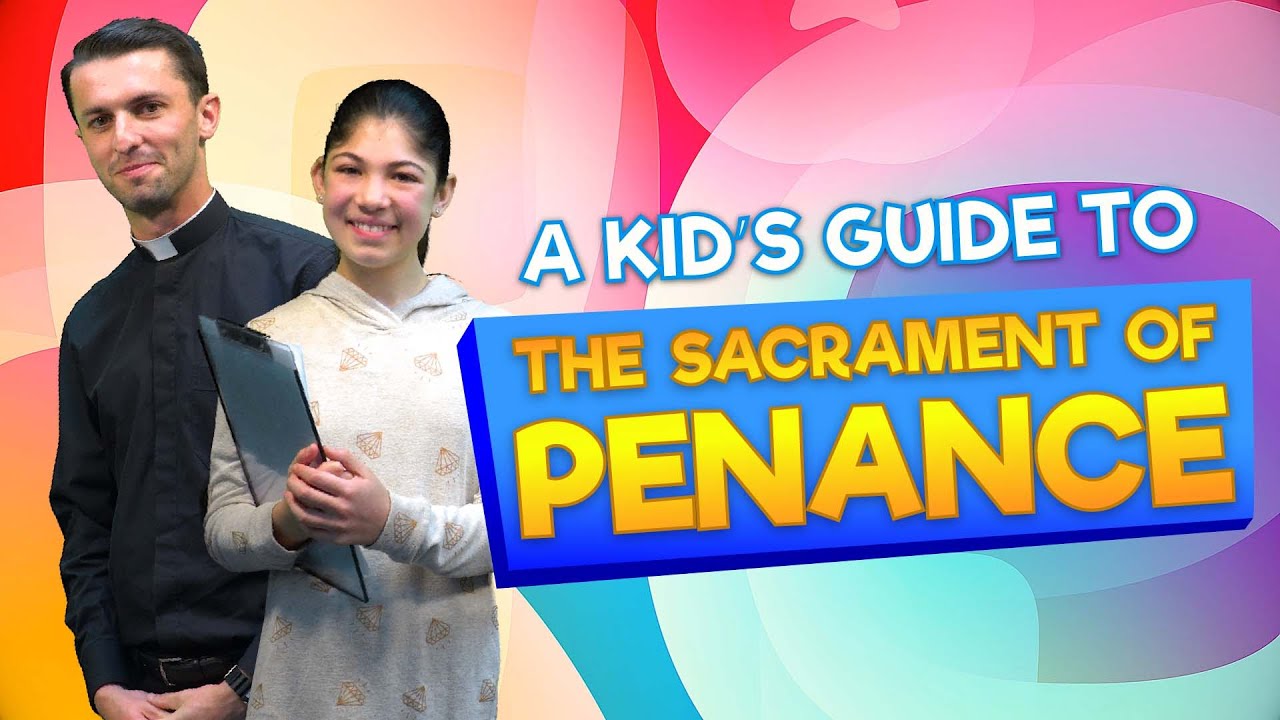The Sacrament of Reconciliation, also known as Confession or Penance, is a sacrament of healing and spiritual renewal in the Catholic Church. It is a sacred opportunity for individuals to seek forgiveness for their sins, receive God’s grace, and restore their relationship with God and the Church community.
Preparing for your First Reconciliation
A Catholic’s First Reconciliation is a significant milestone in their spiritual journey. It marks the beginning of their understanding of sin and forgiveness, and it provides them with an opportunity to experience God’s mercy and grace.
The Catholic Church generally recommends that children experience their first Reconciliation around the age of seven, when they begin to develop a more mature understanding of right and wrong. However, there is no strict age requirement, and the decision of when a child is ready for their first Reconciliation is ultimately up to their parents, in consultation with your local parish priest or child’s religious education teacher.
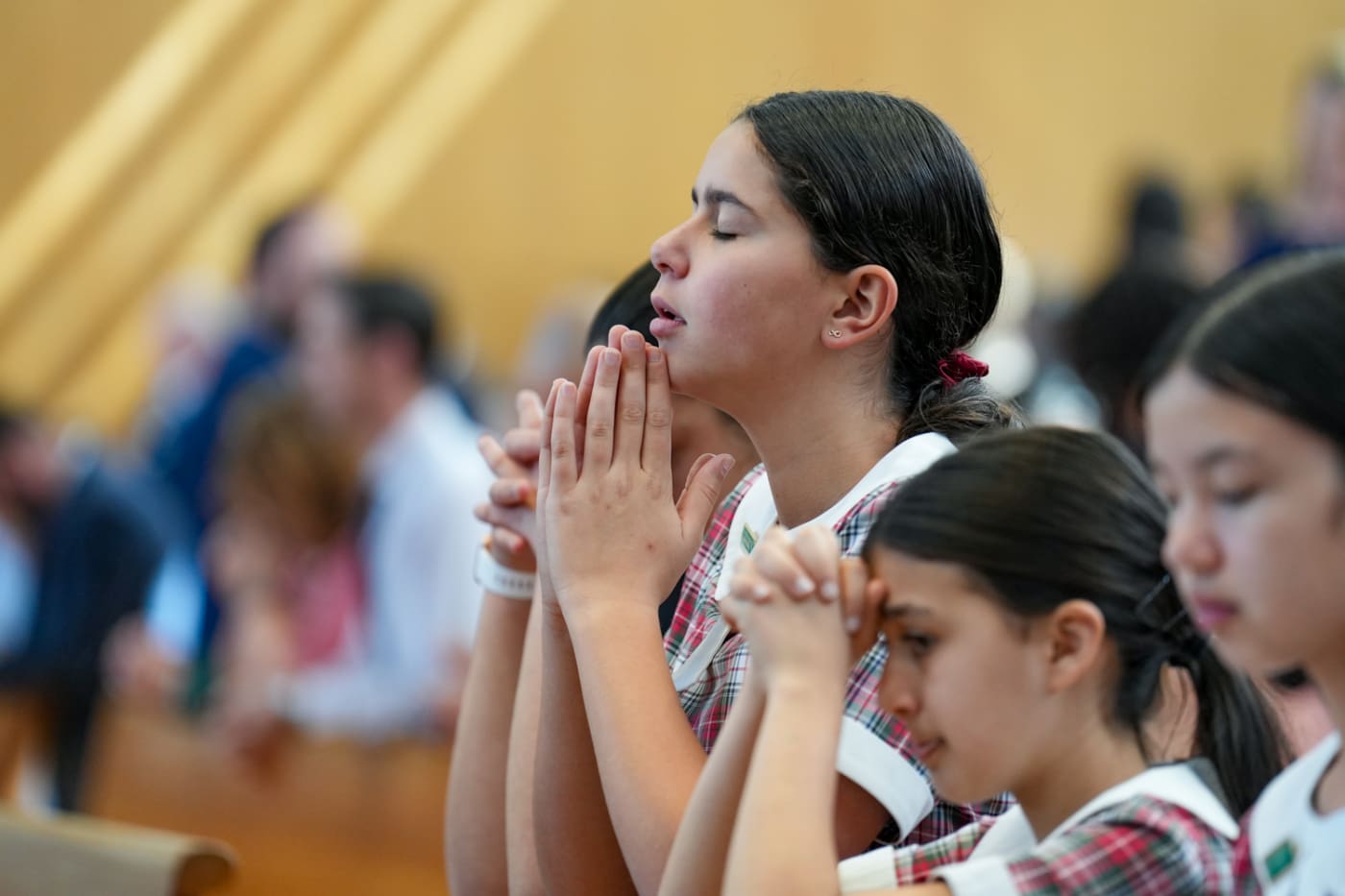

Here’s a breakdown of what typically happens during a child’s first Reconciliation:
Preparation: Before the first Reconciliation, children typically participate in religious education classes which you can organise through your local Catholic church. During the classes, the parish priest or Sacramental Coordinator will teach them about the concepts of sin, forgiveness, and the Sacrament of Reconciliation. They are also taught how to examine their conscience and prepare for confession.
The Examination of Conscience: Children are encouraged to reflect on their actions and thoughts, identifying any instances where they have fallen short of God’s teachings. This introspection helps them develop a deeper understanding of sin and the need for forgiveness.
The Confession: Children are guided through the confession process, which involves expressing their sins to the priest in a private and confidential setting. They are encouraged to be honest and remorseful, seeking God’s forgiveness for their wrongdoing.
Spiritual Guidance and Penance: The priest may offer spiritual guidance and encouragement, addressing any concerns or questions the child may have. They may also assign a penance, which is typically a prayer or act of service that helps the child make reparation for their sins.
Absolution: The priest acting in the person of Christ, grants absolution, absolving the child of their sins and restoring their relationship with God. This is a moment of great spiritual relief and renewal for the child.
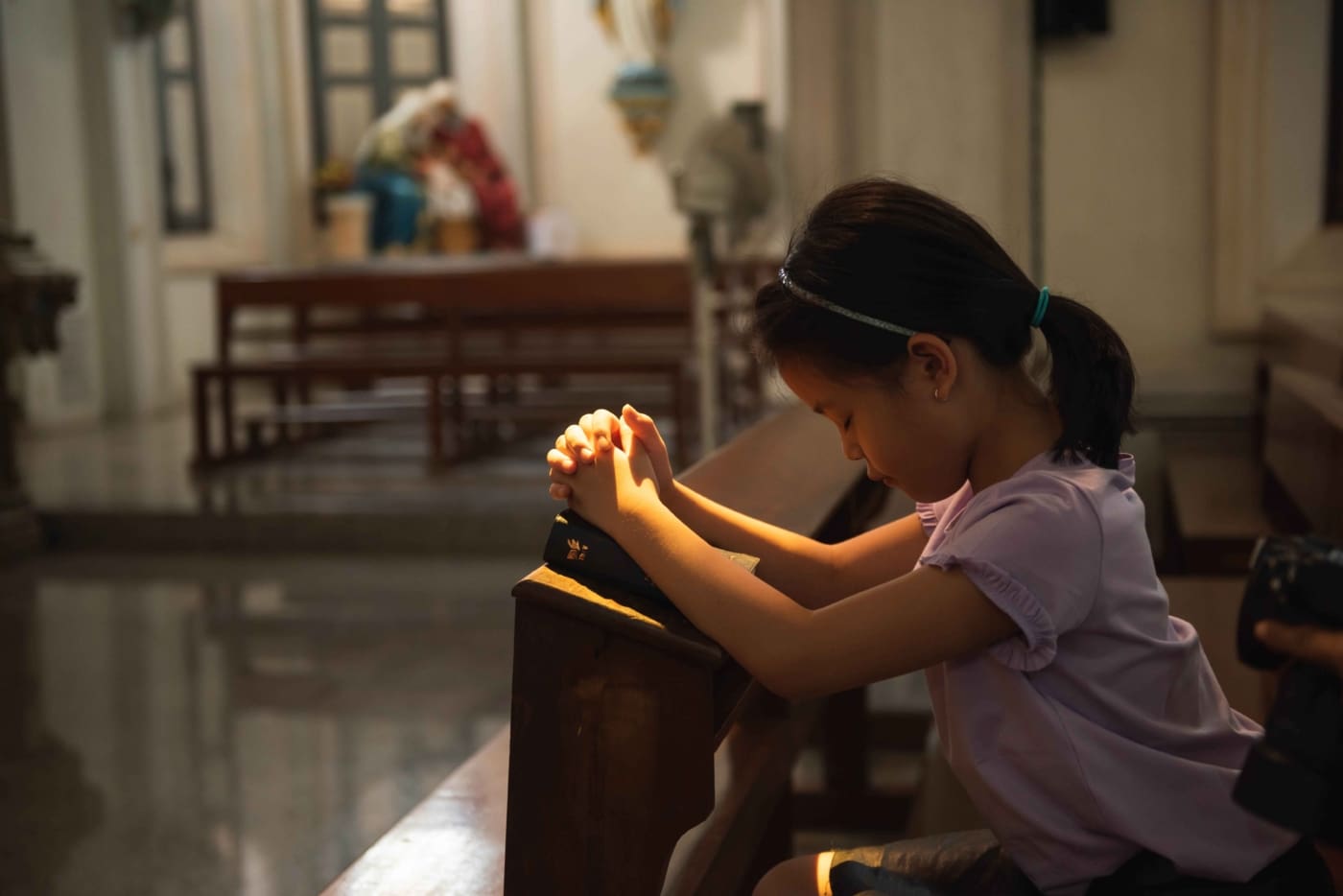
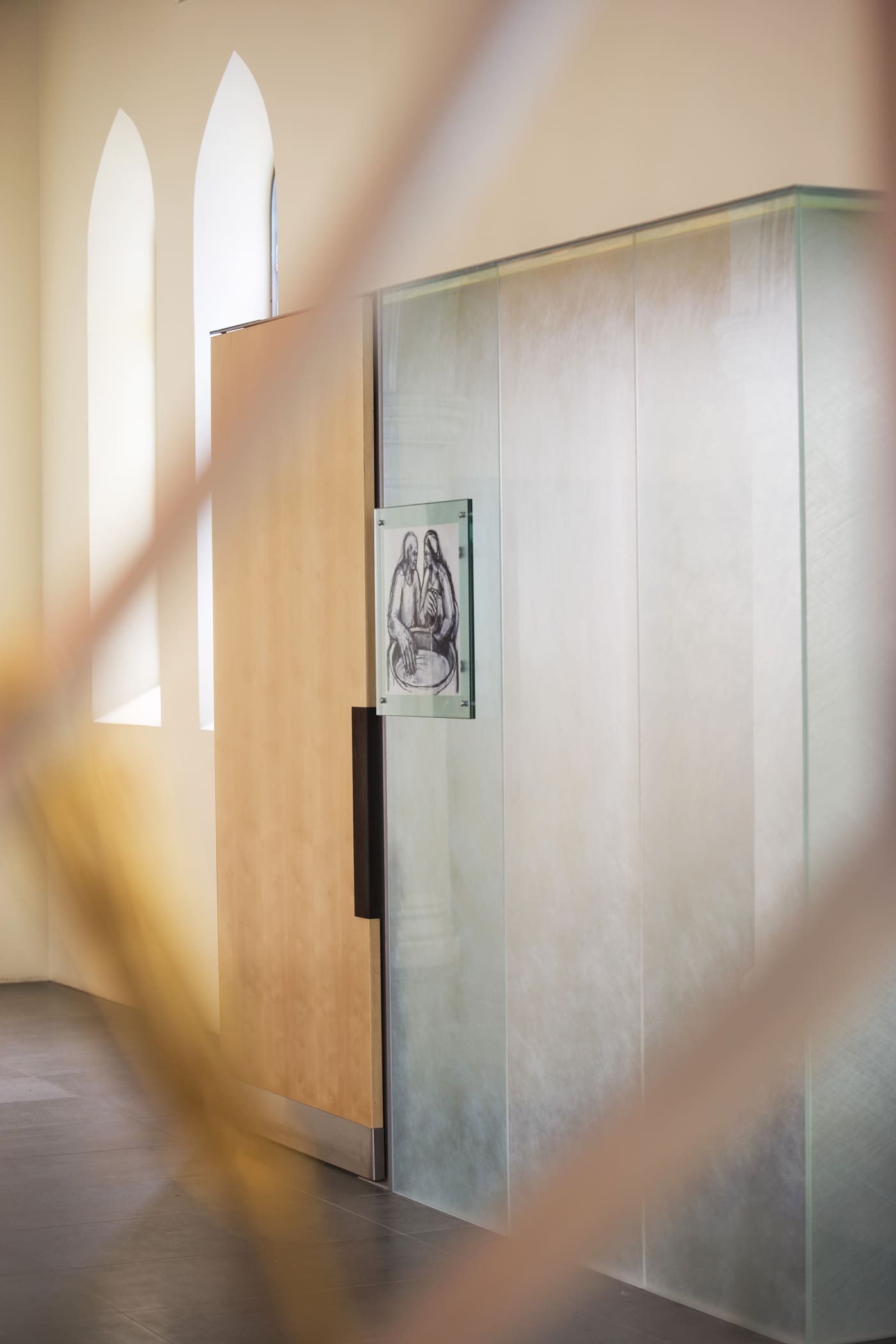
If you visit a Catholic church or event, you may see a space where priests are dedicated to hearing confessions and providing the Sacrament of Reconciliation. If you witness a Reconciliation service, observe the reverence and solemnity of the occasion. Respect the privacy of those seeking reconciliation and the confidentiality of their confessions.
Remember, Reconciliation is a sacred sacrament that plays a vital role in the spiritual lives of Catholics. It is a testament to God’s boundless love and mercy, offering individuals the opportunity to restore their relationship with God and live a life aligned with His will.
Preparing for the Sacrament of Reconciliation
Preparing for the Sacrament of Reconciliation involves a combination of formation, guidance, and spiritual reflection. If you or your child is ready to receive the Sacrament of Reconciliation for the first time, you can:
1. Contact your local parish to organise sacramental preparation classes:
These classes will provide a solid foundation in the teachings of the Catholic Church to help you understand the meaning of this sacrament.
2. Pray together as a family:
Ask for God’s guidance and grace during the preparation process. Encourage your child to pray individually, seeking forgiveness and preparing their hearts for reconciliation.
3. Develop a habit of self-reflection:
Examine your thoughts, actions, and words to identify instances where you may have fallen short of God’s teachings. As a parent, you can guide and model this with your children as a way of teaching them the importance of remorse and a sincere desire to make amends for their mistakes.
4. Discuss the importance of Reconciliation, forgiveness and mercy:
Encourage open communication, allowing your child to ask questions and express their concerns without judgment.
5. Practice:
Role-playing what happens during confession can help your child feel more comfortable with the confession process. Get them to practice expressing their sins in a clear and concise manner and encourage them to prepare a list of their sins beforehand to aid in their confession.
6. Attend Mass Regularly:
Regular attendance at Mass helps all Catholics develop a deeper understanding of the Catholic faith and the importance of the Sacrament of Reconciliation. Witnessing the act of receiving forgiveness from the priest can serve as a powerful example for children.
7. Emphasise God’s Love and Mercy:
Reassure your child that God loves them unconditionally and desires to forgive their sins. Remind them that Reconciliation is a sacrament of healing and renewal, offering a fresh start and restoring their relationship with God.
It is not the man who is responsible for the offerings as they become Christ’s Body and Blood; it is Christ Himself who was crucified for us. The standing figure belongs to the priest who speaks these words. The power and the grace belong to God. ‘This is My Body,’ he says. And these words transform the offerings.
ST JOHN CHRYSOSTOM
Going to Confession
Confession is a sacred and transformative sacrament that offers Catholics the opportunity to seek forgiveness, receive God’s grace, and experience spiritual healing. By approaching confession with sincerity, humility, and a desire for change, Catholics can embark on a journey of spiritual renewal and strengthen their relationship with God.
Confession takes place in a private and confidential setting, typically within a designated confessional or in a private room within the church. This ensures that the conversation between the penitent and the priest remains confidential.
Before entering the confessional or approaching the priest, begin with an Examen of Conscience. Take time to reflect and examine your thoughts, words, and actions and identify any instances where you have fallen short of God’s teachings and committed sins. Use this time of prayer and reflection to consider what you will confess to the priest.
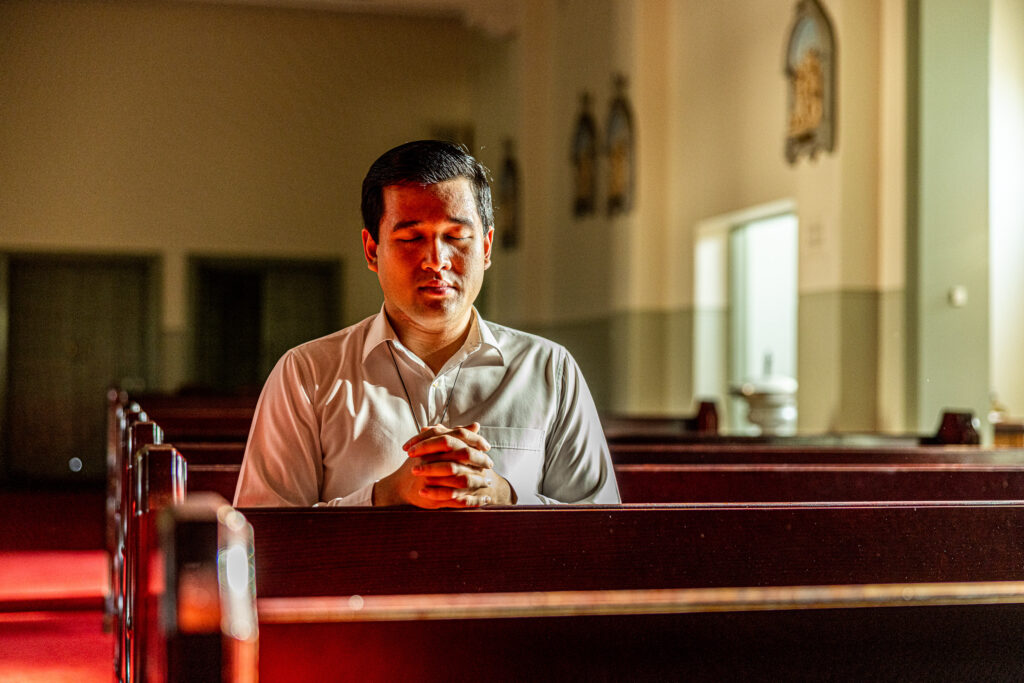

When you are ready, you can approach the priest or enter the confessional and confess your sins to the priest in a clear and concise manner. Express remorse and contrition for your wrongdoing, and demonstrate a genuine desire to seek forgiveness and make amends.
The priest might offer you spiritual guidance and advice, or address concerns or questions you may have about how to avoid occasions of sin in the future. They may also provide encouragement and support as you embark on reconciliation and repair.
The priest may assign you a penance, which is a prayer or act of service that helps you make reparation for their sins. The penance is meant to be a spiritual exercise that reinforces your commitment to change and growth. The priest may also invite you to recite the Act of Contrition.
Finally, the priest, acting in the person of Christ, grants absolution, absolving you of your sins and restoring your relationship with God. This is a moment of great spiritual relief and renewal.
Confession concludes with a celebration of reconciliation. You may participate in Mass and receive the Eucharist, deepening your connection with God and the Church community.
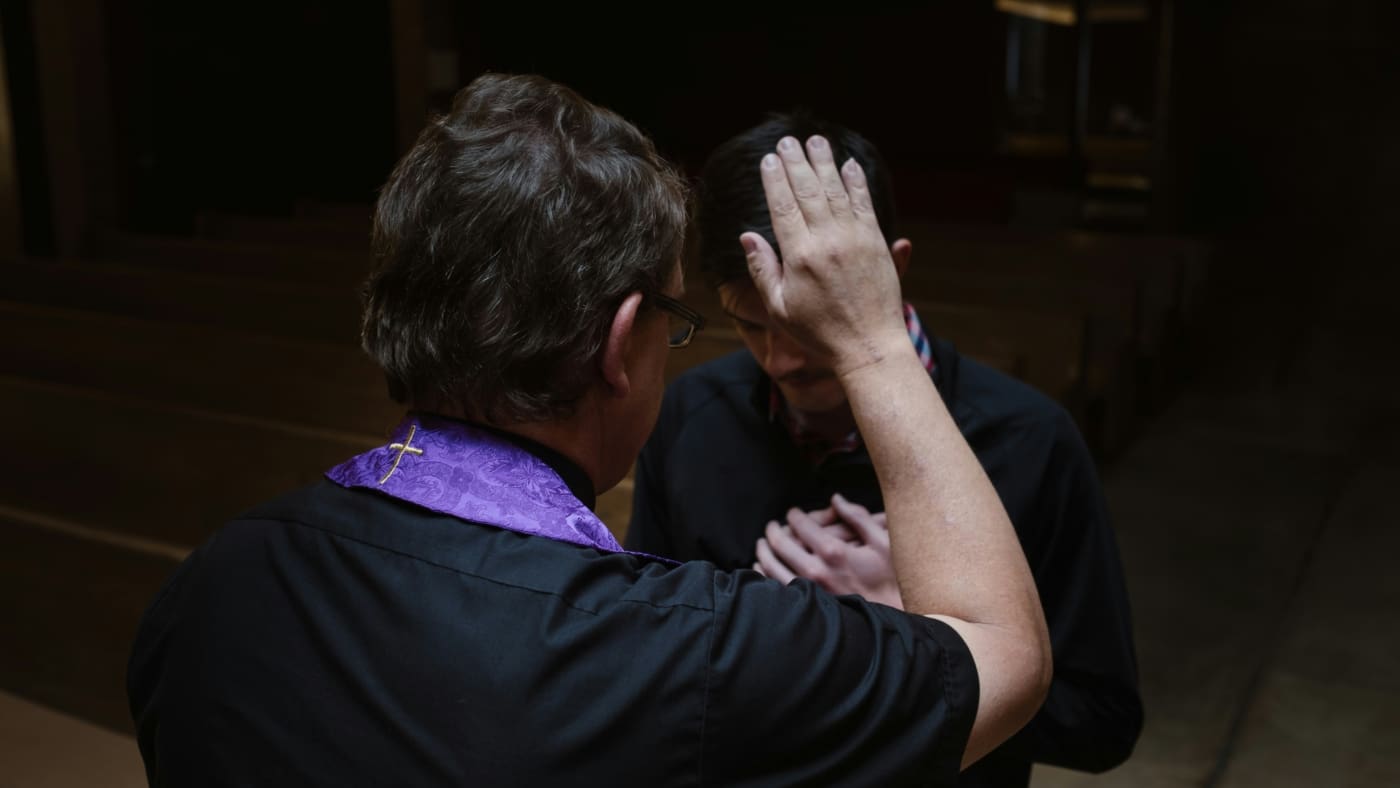
Resources
Need more information?
For more information about the Sacrament of Reconciliation for yourself or your child, you can contact your local Catholic parish or a priest or complete the form below:

